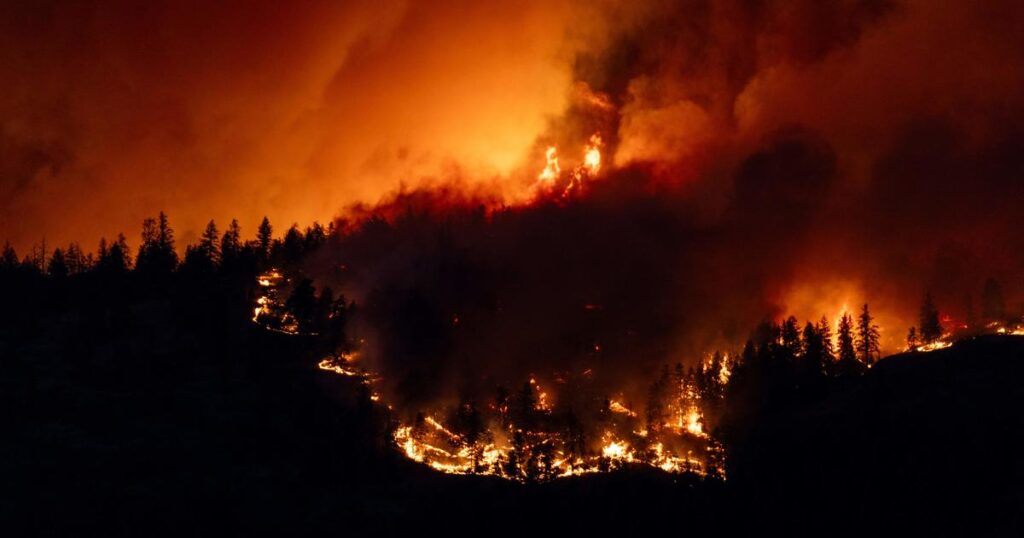Canadian officials warned Wednesday that the country could face another devastating wildfire season after last year. historic fire.
This winter has been warmer than average across Canada, causing widespread drought, officials said. Weather forecasts predict that Canada will continue to experience warmer-than-normal temperatures this spring and summer, making wildfires more likely.
“As we continue to experience hotter and drier weather across the country, wildfire season may start earlier, end later and become more explosive,” Canada's Emergency Preparedness Minister Harjit Sajjan said at a press conference. said.
Canada's wildfire season typically lasts from May to October. The country is home to about 9% of the world's forests.
Last year's wildfire season was the most destructive on record, Sajjan said. Over 6,000 fires Last summer, fires ripped through Canada and tore through tens of millions of acres of land. Hundreds of thousands of Canadians have been evacuated from their homes as wildfires ravage the country.
David Dee Delgado/Getty Images
smoke It swept into the United States, covering the East Coast and parts of the Midwest. Last June, New York City's air quality became some of the worst in the world as smoke from the Canadian wildfires swept in.
In 2023, severe weather in Canada caused more than $3.1 billion in insured losses, officials said.
As Canada prepares for the upcoming wildfire season, the federal government is working closely with local governments to review the situation that occurred last summer. Authorities are working on emergency preparedness plans and risk assessments. There is also emphasis on acquiring specialized firefighting equipment and training firefighters.
“While it is impossible to predict with certainty the summer ahead of us, it is clear that wildfires will remain a major challenge for Canada into the future as the effects of climate change continue to intensify,” said Sajjan. Ta.
Government officials also emphasized the need to address climate change.
“Extreme weather events are becoming all too familiar to Canadians as the effects of climate change impact our communities,” Environment and Climate Change Minister Stephen Guilbeault said in a statement. . “These events are costing Canadians and the Canadian government billions of dollars.”
Frédéric Chouinard/Sofu/Handout/Anadolu Agency via Getty Images
Climate-related impacts currently cost the average Canadian household $720 per year, according to government data. It is predicted to rise to around $2,000 per year by 2050.
“We must do more to prepare for the impacts of climate change and accelerate our collective efforts to stop carbon pollution from adding more to this global crisis.” Guilbeault he said. “After an extraordinary wildfire season in 2023, we once again face the possibility of another active wildfire season this year. This is a stark reminder of the need to work together to reduce the risks posed by COVID-19.”


